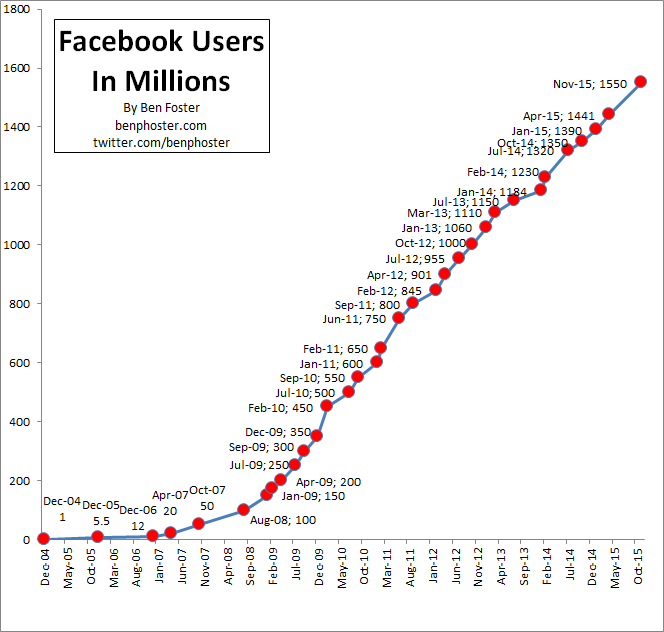Bitcoin is not a safe investment.

I believe in the future of bitcoin and the future of the crypto market, but I will not tell you it's risk-free. I will not make sensational predictions about price because I simply do not know. Is $1 million dollars per coin possible? Sure, but that's a complex question. Placing the bitcoin market over 21 trillion dollars should make you wonder what's going on with the spending power of a dollar. In this distant hypothetical future, maybe you want to measure the value of bitcoin in big macs to get a better idea of how much money you really have.
My The point is that I’m not cheerleading for bitcoin. There are real challenges ahead for the community, and there are real risks to holding a cryptocurrency. The success of bitcoin will depend on solving problems such and listening to valid criticisms from users. Despite these very real risks, there are several criticisms of bitcoin (and the cryptocurrency space in general) floating around that are not constructive. Especially for those new to cryptocurrency, we need to separate the legitimate critiques from the fallacies to construct a fundamental analysis of bitcoin.
Bitcoin is in a bubble just like the dutch tulip bubble!
This argument is usually accompanied by a claim that bitcoin has no inherent value. Sometimes the words "pyramid" or "ponzi" are thrown around, although these have specific definitions which don't fit with bitcoin. Namely that bitcoin, unlike pyramid or ponzi investment schemes, is not an enterprise. Exchanges are enterprises, mining is an enterprise, but bitcoin itself is not an enterprise.
The first question you need to ask yourself about bitcoin: what does it do? It serves as a token to store and transfer value. Money has always been subject to technological improvements- paper is easier to spend than gold, and credit cards and ACH transfers are even easier. Blockchain technology, which bitcoin pioneered for public use, offers greater security and convenience than existing payment systems. Bitcoin itself offers a transparent and predictable rate of supply that cannot be altered by any one organization, and is currently the most widely accepted digital currency.
So why doesn’t the Dutch tulip bubble help us understand Bitcoin? The Dutch tulip comparison is poor because tulips were not a new technological development in 17th century Holland. The Dutch people had likely seen centuries of relatively stable tulip prices, only to have their value explode in a short period of time. There were likely not too many people just discovering tulips, nor was the tulip infrastructure rapidly expanding. To get an idea of the true value behind bitcoin and other cryptocurrencies, we need to compare growth with that of other emerging technologies, and underlying value in terms of industries where blockchain projects can be valuable.
Although we have plenty of tech to compare bitcoin with, stocks of technology companies may not be analogous to bitcoin either. Facebook, for example, truly pioneered social media for the masses, though Facebook’s IPO was 8 years after the website began. The massive growth we've seen in Bitcoin over the last 2 years is only a bit more impressive than the rate Facebook acquired users from 2007 to 2009. Facebook grew from 20 million users to over 400 million users from July 2007 to December 2009, a factor of over 2000%. Bitcoin has managed to shave a few months off that timeline, nearing 2000% growth in the period between August 2015 and August 2017. A growth factor of 2000% might be a reason to look for a potential bubble, but does not confirm a bubble by itself.
While the Facebook growth comparison is also imperfect- the price of bitcoin is not directly correlated to the number of people using bitcoin since each person is bringing a different sum of wealth to the table, it provides a better view of what can happen when people begin to adopt a new technology. While there are patterns in price action, there are no rules. While it could pay to watch competition from both traditional and alternative financial services, you're unlikely to see bitcoin's place in the economy replaced by tulips or beanie babies. Any worthwhile critique of bitcoin should recognize it as a financial tool, and not an ornamental bulb or collectible toy.
The cryptocurrency market is only for criminals!
While this is a really fascinating ethical discussion, it has absolutely nothing to do with price targets. Why would it? The conclusion of this argument is usually that bitcoin will fade in to the shadowy, criminal fringe of society once upstanding investors realize they’ve inadvertently stepped in to the financial world’s bad neighborhood. This is the kind of argument that makes a lot of sense in a Disney movie, but not in the real world.
Defining the size of the shadow economy is difficult since it changes depending on who you ask, but Business Insider claims that if the shadow economy were its own country, the GDP would come in around $10 trillion and be the second largest economy on earth. Assuming bitcoin were only used for these “shadow economy” transactions, that’s still an incredible amount of growth potential. The target audience? The same Business Insider article claims it would be limited to approximately half the world’s population. And if you’re in Washington, Colorado, or one of 6 other states smoking a perfectly legal marijuana cigarette, you’re also the source of economic demand forcing multi-billion dollar industries to consider using cryptocurrency due to issues with existing financial services.
The government will ban or regulate bitcoin!
Often part of the same argument that bitcoin is only useful for criminal enterprise is the idea that the hand of government will step in to put a stop to all these shenanigans. There will be attempts to regulate cryptocurrencies in the future. Government entities have made statements about regulations ranging from declaration of digital assets when traveling to registering of digital assets as securities. Governments also seem to have made it a priority to track down crypto entrepreneurs accused of criminal activity. There looks to be a very coordinated crackdown beginning.
Regulation is probably one of the most legitimate discussions to have about the future of cryptocurrencies, but also the topic where you’ll find the most ill-conceived ideas about how cryptocurrencies or regulations work. A simple concept becomes a total nightmare when you explore the nuts and bolts of writing legislation, implementing, and enforcing it. What even is a cryptocurrency? What specific regulations are we applying to these instruments?
Enforcement is a separate issue from legislation, but perhaps more important. Since most cryptocurrency is a network of computers all simultaneously running the same software, trying to stop the bitcoin network is a bit like trying to kill every ant in your garden. Some serious crimes carry extradition treaties, but many regulatory fiascos can be avoided by simply changing locations or obscuring your identity. There is no simple way to block bitcoin funds from being transferred across international borders, and not enough resources to chase down and investigate every potential financial crime. The SEC and IRS were simply not designed to deal with decentralized, potentially anonymous markets.
Discussing the full spectrum of possibilities would require a separate article (if not dozens), but spotting a half-baked idea is easy. Regulations are a real concern for cryptocurrency enthusiasts, but the problem is much more complex than simply stamping the word “banned” on cryptocurrency, or even calling ICO tokens “securities”. The rule to follow for those claiming regulation will kill the cryptocurrency market: “if it sounds to good to be true, it probably is”. If there were quick and simple solution for controlling cryptocurrencies, why aren’t governments implementing them already? If someone is touting an enforcement mechanism that sounds vague, it probably won’t work.

The entire ICO market is a pump and dump!
Aside from regulatory issues with the ICO market, there’s a lot of fear around how the ICO market props up the price of bitcoin, and when it will all come crashing down. Critics point to the hundreds (if not thousands) of coins in existence, and absurd valuations for projects like “fuck token” that seem to be blatant cash grabs offering no value at all.
Although I am not sure about the real future of “fuck token” or “potcoin”, and even feel that many more serious projects may not be able to deliver on promises, these valuations are quite small compared with the industries they aim to enter. Decentralized storage solution Siacoin is valued around 225 million dollars today. The project aims to offer lower costs while delivering better speed and security for cloud storage compared with current providers. For an industry that is poised to be generating revenue around $390 billion by 2020, these prices are a bargain if the technology delivers something competitive.
Even projects as ridiculous as “fuck token” may not be quite as overvalued as they first appear. Why not? The project actually a cleverly designed tipping system for internet message boards. With a target audience of about 250 million users on reddit alone, a $1 million internal joke economy is far from the strangest concept. Considering you can match that market cap with around 10 pokemon cards from this list, I wouldn’t consider this an alarming signal that ICOs have gotten out of hand.
The bottom line is the ICO market will have plenty of failures, but even a handful of successes will be enough to allow the cryptocurrency market to flourish. Bitcoin is a technology that has already carved out a healthy niche as the most liquid medium of exchange in an emerging market. Although it’s possible for another cryptocurrency to take its place one day, the structure of the blockchain economy necessitates a “reserve” currency through which all other tokens and coins are purchased. Bitcoin is currently filling this need.
So what is bitcoin worth?
There are many hurdles to cryptocurrency becoming the norm in coffee shops and restaurants. If your local currency is the USD or the GBP, don’t expect your local currency to disappear overnight. This isn’t necessarily a bearish factor for bitcoin, however. Bitcoin already has an advantage in digital the digital services market. Cloud storage and computing, digital advertising, and other related services can be offered to an international market using bitcoin as a convenient bridge between fiat currencies and other digital assets.
One of the biggest challenges for bitcoin will be competing with other assets- both centralized and decentralized. As more cryptocurrencies hit the market boasting unique features and monetary policies, it’s difficult to tell how many users will be able to wrap their heads around how these assets work. How can bitcoin proponents sell the average person on decentralization? If bitcoin does become widely adopted, is a deflationary monetary policy best for the economy?
Bitcoin is a fascinating experiment, and has likely ushered in a new era of technological and economic possibilities. Despite all the excitement surrounding bitcoin, it’s important to recognize the future is not yet set in stone. We have only caught the tiniest glimpse of how the market digests these assets and how consumers utilize these tools. Bitcoin is a risky, but potentially game changing investment for those able to keep up with the technology and the market. It’s possible that bitcoin experiences at least one speculative bubble, and we can’t be sure the bitcoin infrastructure will continue to grow forever. Bitcoin, absolutely, is not a tulip.
About the author
Pinko is a small group of writers and thinkers working as one revolutionary mind. Xe is formally educated in the social sciences, and enthusiastic about topics in economics, technology, and cryptocurrency. Xe's an unapologetic communist and a proponent of all that is free and open source. All comrades should consider following on Steemit and Stocktwits as we bring Marxism to the 21st century.

Congratulations @pinko! You received a personal award!
You can view your badges on your Steem Board and compare to others on the Steem Ranking
Vote for @Steemitboard as a witness to get one more award and increased upvotes!